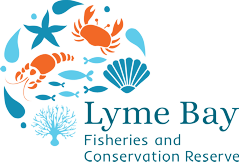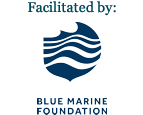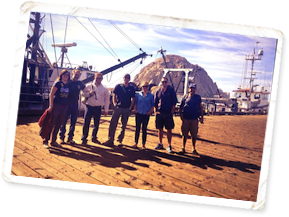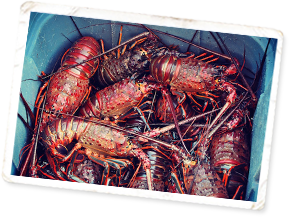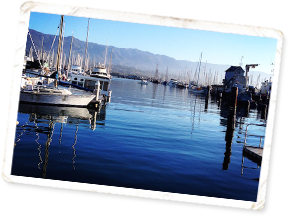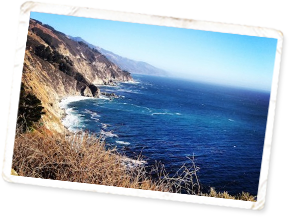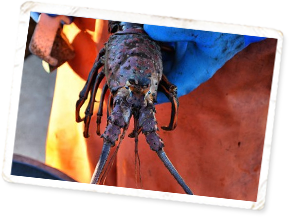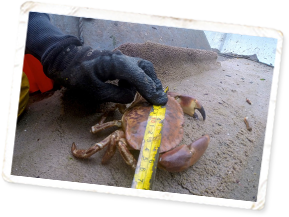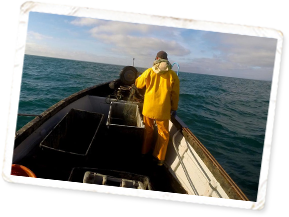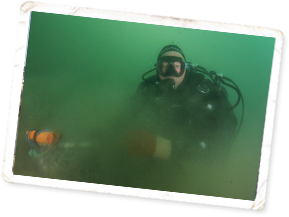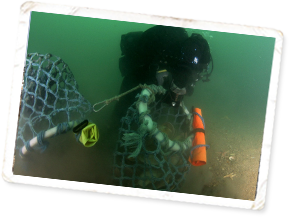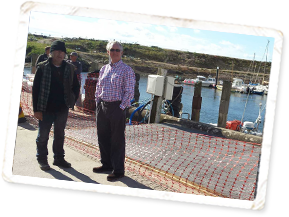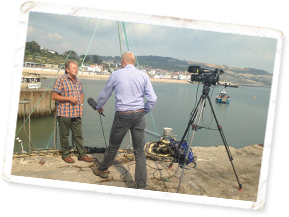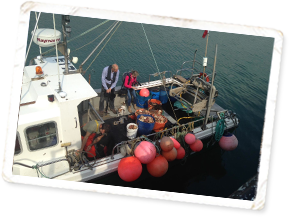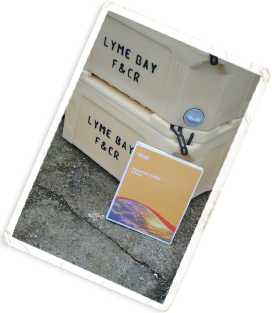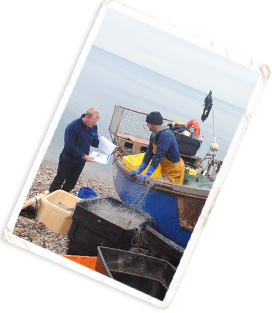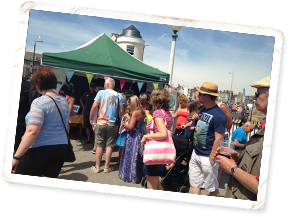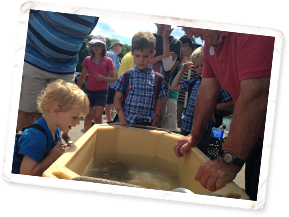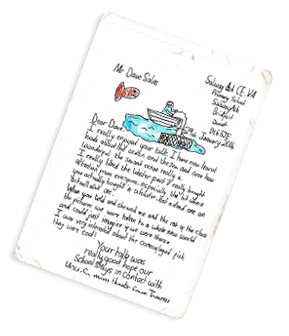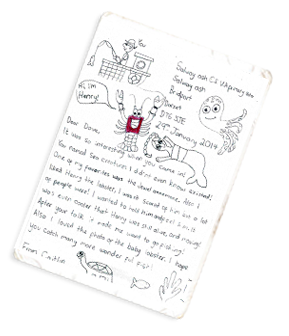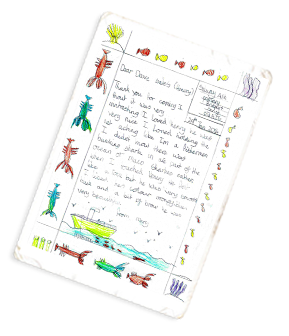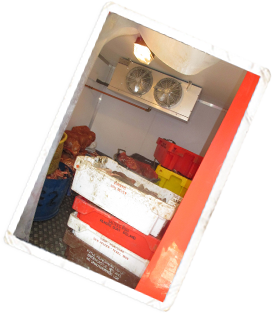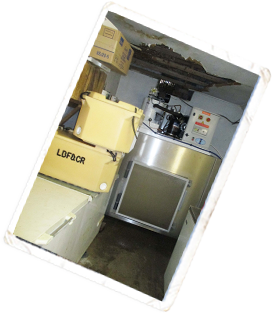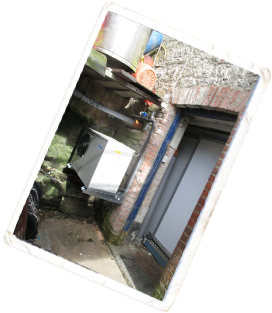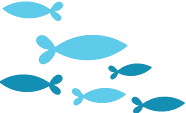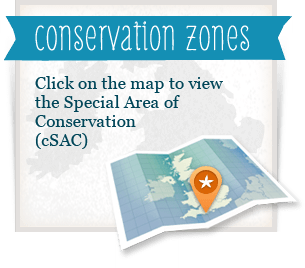
2014 News
Californian Collaboration: the Central Coast ground fish projectDecember 5th, 2014
Here is the fourth instalment on the Lyme Bay – Morro Bay #GAP2exchange. Simon Pengelly, of the Southern Inshore Fisheries & Conservation Authority (IFCA) shares his reflections of his time on this #GAP2exchange, and explains how and why collaboration in Morro Bay Fishery has been successful…
http://gap2.eu/gap2general/californian-collaboration-the-central-coast-ground-fish-project/
![]()
November 19th, 2014
In this third blog post on the Lyme Bay team’s #GAP2exchange trip, fisheries consultant Andy Woolmer gives us an insight into what was learnt – and explains why a love of data means more efficient fishing for the Morro Bay community.
http://gap2.eu/gap2general/real-time-data/
![]()
November 17th, 2014
Here is the second installment (and blog post) on the Lyme Bay – Morro Bay GAP2 Exchange trip. Jon Shuker, a fisherman from the Lyme Bay Fisheries and Conservation Reserve discusses what he got up to on the exchange, what he found out, and some reflections as to how this compares to his local fishing grounds…
http://gap2.eu/gap2general/monterey-to-morro/
![]()
29th October, 2014
Adam Rees - PhD student running the Lyme Bay Fisheries and Conservation Reserve Scientific Potting Study has been out sampling and recording data. During quantitative pot sampling all species caught are recorded. Commercial potting targets are mainly crabs and lobsters. For these species carapace (shell) widths (seen in the photo) and lengths (for lobsters) are measured to help quantify animals into size and age classes. Crabs and lobsters are also weighed, sexed and assessed for damage to provide further data. This data is collected seasonally and analysed for trends over the duration of the experimental potting project.
p>
For further details about the Scientific Potting visit:
http://www.lymebayreserve.co.uk/download-centre/files/The_Lyme_Bay_Experimental_Potting_Project.pdf
![]()
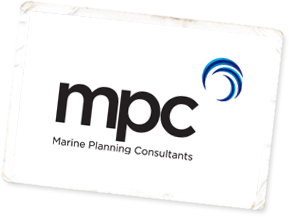
21st October, 2014
The Blue Marine Foundation and the Lyme Bay Working Group including local fishermen and fisheries and conservation managers, commissioned the Marine Planning Consultants to pull together evidence on the sustainability of fishing activity in the area. This has allowed options to be formed to enable the Working Group to develop an Integrated Fisheries Management Plan for Lyme Bay, pulling together all the work of the IFCAs, MMO and Cefas to date, amongst others. The aim of this work is to enable the Working Group to collectively plan for the future and support ecologically and commercially sustainable fisheries and a prosperous fishing community.
Click here to review the Integrated Fisheries Management Plan
![]()
3rd October, 2014
Challenging conditions presented talented underwater photographer Focus Visuals - Photography by Saeed Rashid as he went diving with sustainable scallop diver John Worwick and his crew from the Lyme Bay Fisheries and Conservation Reserve.
Despite the murky conditions Saeed faced, he was still able to take these amazing photos of John at work, carefully hand-picking scallops from the seabed.
Capturing a day in the life of a scallop diver on the seabed of Lyme Bay was never going to be an easy assignment, but one Saeed will not give up on as he vows to return over the winter months when hopefully the visibility clears. Our fingers and toes are crossed so we can bring you life at work under the waves of Lyme Bay.
![]()
1st October, 2014
Planning permission has been granted from East Devon District Council for the installation of the Axmouth chiller unit. East Devon Fisherman's Association Axmouth Branch got to work laying the foundations for the chiller unit, which will include an ice making machine and thermal boxes. The Fisherman's Association will be cladding the unit to harmonise with the surrounding area and SPX will be installing the units in the custom made made chiller room to the fishermen's requirements.
This is all part of the European Fisheries Fund grant which the BLUE Marine Foundation is match funding and is part of a bigger scheme for the Lyme Bay Fisheries and Conservation Reserve, which includes ice facilities for all four ports and is integral to the traceability, quality assurance and provenance scheme which is being rolled out in association with the Seafish Responsibly Fishing Scheme. Pictured here is Lyme Bay Reserve Chairman Tim Glover and Axmouth fisherman Angus Walker.
![]() Dolphins filmed in Lyme Bay
Dolphins filmed in Lyme Bay
26th September, 2014
Static gear fisherman Aubrey Banfield from West Bay and the Lyme Bay Fisheries and Conservation Reserve filmed around 40 dolphins whilst out fishing in Lyme Bay. Fantastic to see so many in the area.
Dolphins filmed in Lyme Bay from Lyme Bay Reserve on Vimeo
![]()
24th September, 2014
A busy day was had as we saw ITV Westcountry News film about the GAP2 Project, which sees Lyme Bay Reserve fishermen and fisheries advisors head out to Morro Bay, California in a knowledge exchange trip.
ITV Environment Correspondent Duncan Sleightholme and GAP2 Project Officer Kartrina Borrow went out with scallop diver John Shucker, one of the fishermen chosen to go to Morro Bay. They headed out to sea to film for the news item in lovely calm seas.
![]()
9th September, 2014
Seafish has now fully engaged with all commercial vessels working in the Lyme Bay Reserve and 26 of them are now fully audited and members of the Responsible Fishing Scheme. 13 have been coached and require auditing over the coming months.
The Responsible Fishing Scheme (RFS) was developed by Seafish to raise standards in the UK catching sector and launched by the Seafish Industry Authority in 2006. The aim is to enable the skippers of RFS certified vessels to demonstrate their compliance with good practice and hence allow the seafood supply chain to demonstrate its commitment to responsible sourcing by buying from such vessels.
Pictured here is Gus Caslake - Fishing Gear Technologist for Seafish with fishermen Jim Newton of Beer, Devon. Gus has been responsible in auditing the vessels in Lyme Bay.
For further information on the RFS scheme visit: http://www.seafish.org/responsible-sourcing/responsible-fishing-scheme
![]() Weymouth Seafood Festival
Weymouth Seafood Festival
12th & 13th July, 2014
Our stand gathered a huge amount of interest over the weekend from young and old alike. Lyme Bay scallop diver John Shucker was instrumental in providing the live show, which included live hand-dived scallops, lobsters and crabs which was a real crowd pleaser.
Big thanks to our fishermen Dave Sales, Angus Walker, Jamie Smith and John Shucker for providing the inquisitive public with fishy facts during the festival and for being the brave ones to pick up the rather large lobster!
BLUE Marine Foundation and the Lyme Bay Fisheries and Conservation Reserve are looking forward to next year's festival already. Roll on 2015!
![]() GAP2 Project Funding Success
GAP2 Project Funding Success
13th June, 2014
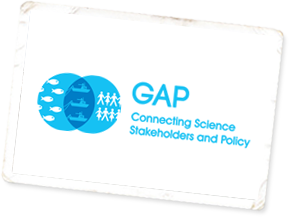 Fishermen from Lyme Bay Fisheries and Conservation Reserve have the unique opportunity to travel to Morro Bay, California to share in their knowledge of testing an innovative system for real-time data collection to inform fisheries management.
Fishermen from Lyme Bay Fisheries and Conservation Reserve have the unique opportunity to travel to Morro Bay, California to share in their knowledge of testing an innovative system for real-time data collection to inform fisheries management.
Funded by the GAP2 Project, which is providing an exchange program for researchers, fishery stakeholders and policy makers, it aims to explore how collaboration works and to encourage the sharing of understanding and ideas, by funding candidates to travel and undertake an exchange trip with relevance to participatory research.
Since 2011 BLUE Marine Foundation (facilitators of the Lyme Bay Fisheries and Conservation Reserve) has been working with the local fishermen to devise a revolutionary model of self-management, which financially benefits and motivates fishing communities to fish in more sustainable ways, thus creating a future for their businesses. BLUE is now planning to lead the project through the next stage to ensure a properly planned, well-managed, scientifically-backed, and sustainable fishery in this area. Working with project partner, Succorfish, this project will:
- Develop and test a new system to collect fisheries data
- On-board integration of a smart-phone App
- Develop a local certification scheme
The work currently being carried out in Lyme Bay will make Lyme Bay the first Fully Documented Fishery for the UK inshore fleet. This will be a fantastic achievement and it is hoped that it will pave the way for improved data collection and management across the UK inshore fishery.
However, as a pioneering project, no local examples currently exist with which BLUE Marine Foundation (facilitators of the Lyme Bay Fisheries and Conservation Reserve) can consult and share knowledge with during the initial stages of the project. As such, the GAP2 exchange programme presents a fantastic opportunity for BLUE to exchange information and learning that isn’t always readily available with a project, which uses similar technology tools to connect science, fisheries and conservation objectives.
For more information about this initiative head over to GAP2 Project: http://gap2.eu/the-gap2-exchange/
We'll keep you posted with all the latest happenings here. So keep your eye open for more information.
![]() Lyme Bay Voluntary Code of Conduct for the Recreational Sea Angler
Lyme Bay Voluntary Code of Conduct for the Recreational Sea Angler
30th May, 2014
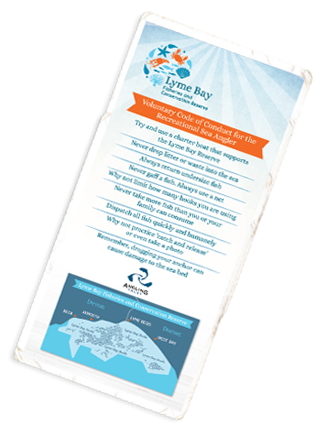 A voluntary code of conduct has been drawn up for recreational anglers fishing within the Lyme Bay Fisheries and Conservation Reserve area off the coast of Devon and Dorset. Local fishing clubs, tackle shops, charter skippers and anglers have been consulted over the simple nine point code, drawn up by Mike Spiller, the Angling Trust's representative on the project's working group. The code will encourage anglers to fish responsibly and sustainably within the Lyme Bay box. The code includes: 1) Try and use a charter boat that supports the Lyme Bay Reserve, 2) Never drop litter or waste into the sea, 3) Always return undersize fish , 4) Never gaff a fish. Always use a net, 5) Why not limit how many hooks you are using, 6) Never take more fish than you or your family can consume, 7) Dispatch all fish quickly and humanely, 8) Why not practice ‘catch and release' or even take a photo, 9) Remember, dragging your anchor can cause damage to the seabed. Fishermen, conservationists and fisheries managers working together through the project have agreed on a number of other codes for different fishing activities.
A voluntary code of conduct has been drawn up for recreational anglers fishing within the Lyme Bay Fisheries and Conservation Reserve area off the coast of Devon and Dorset. Local fishing clubs, tackle shops, charter skippers and anglers have been consulted over the simple nine point code, drawn up by Mike Spiller, the Angling Trust's representative on the project's working group. The code will encourage anglers to fish responsibly and sustainably within the Lyme Bay box. The code includes: 1) Try and use a charter boat that supports the Lyme Bay Reserve, 2) Never drop litter or waste into the sea, 3) Always return undersize fish , 4) Never gaff a fish. Always use a net, 5) Why not limit how many hooks you are using, 6) Never take more fish than you or your family can consume, 7) Dispatch all fish quickly and humanely, 8) Why not practice ‘catch and release' or even take a photo, 9) Remember, dragging your anchor can cause damage to the seabed. Fishermen, conservationists and fisheries managers working together through the project have agreed on a number of other codes for different fishing activities.
Mike Spiller believes "the responsible sea angler is generally becoming a different breed of angler now, much more interested in what is going on and happening around them. Long gone are the days of catching as much as possible because it was there to do so. Hopefully the Lyme Bay Fisheries and Conservation Reserve, through its very simple code of conduct for angling can help even more, perhaps it can spread to other areas being set up".
The Lyme Bay Fisheries and Conservation Reserve Committee Chairman Tim Glover said: "The Lyme Bay Reserve committee were delighted when an Angling Trust representative joined us and immediately made a contribution to the fisheries and conservation management of the Bay. The new angling code joins the existing commercial fishing code to demonstrate the efforts being made by responsible fishermen of all types to encourage best practices to help conserve fish, shellfish and the rich biodiversity of Lyme Bay".
In 2008 the area was closed to trawling following extensive damage to the reef habitat but was subsequently threatened to be overfished by a sharp increase in the use of static fishing gear. Anglers in the area have credited the trawling ban with an increase in the diversity of species, such as rays, in the area over recent years.
The Lyme Bay Fisheries and Conservation Reserve is a marine area in which multiple uses such as fishing and diving are allowed as long as none are damaging to the seabed or to nature conservation. Its mission is to forge links between fishermen, conservationists, regulators and scientists in order to maintain a healthy, productive and sustainable Marine Reserve within the Bay. Its vision is to achieve a well-managed Marine Reserve that will benefit fishing and conservation alike.
Download the Voluntary Code of Conduct for the Recreational Sea Angler here.
![]() Esmée Fairbairn
Esmée Fairbairn
1st May, 2014
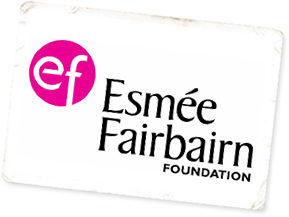 BLUE Marine Foundation who facilitate the Lyme Bay Fisheries and Conservation Reserve were awarded £150k from the Esmée Fairbairn Foundation, which is made up of £50k installments over three years for the progression and growth of the Lyme Bay project. BLUE's main project outcomes are:
BLUE Marine Foundation who facilitate the Lyme Bay Fisheries and Conservation Reserve were awarded £150k from the Esmée Fairbairn Foundation, which is made up of £50k installments over three years for the progression and growth of the Lyme Bay project. BLUE's main project outcomes are:
- Improved protection of the marine reef structures and habitats resulting in recovery and regeneration of the reef which is supported by evidence-based, scientific monitoring. This protection will increase habitat complexity enabling the re-establishment of more complex marine communities and supporting a wealth of marine life within them.
- Improved sustainability of the fishery and an improved product that is traceable, sustainable and of higher quality improving its economic value to the fishermen and community. The project is enabling the fishermen to take ownership of the management of the fishery for its long-term sustainability.
- Development of a model for adopting elsewhere the UK. Development of working practices and scientific study designs, which can be adapted and deployed in other areas around UK.
1st May, 2014
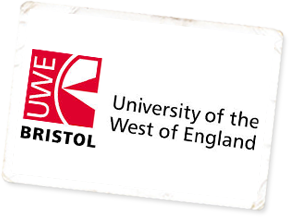 A report commissioned by the BLUE Marine Foundation and led by the University of the West of England (UWE) has found that fishing beyond sustainable levels is illegal. The report concludes that countries which permit fisheries beyond ‘maximum sustainable yield' (MSY) are in breach of their obligations under international law and that they have a duty to maintain and restore fish stocks where those stocks are depleted.
A report commissioned by the BLUE Marine Foundation and led by the University of the West of England (UWE) has found that fishing beyond sustainable levels is illegal. The report concludes that countries which permit fisheries beyond ‘maximum sustainable yield' (MSY) are in breach of their obligations under international law and that they have a duty to maintain and restore fish stocks where those stocks are depleted.
This research has now been featured on the front page of the UWE website as one of the most important areas of the research by the University in the last 6 years: www.uwe.ac.uk
This is really good news as it signals recognition from the institution at the very highest level.
![]() Natura 2000 Awards
Natura 2000 Awards
22nd April, 2014
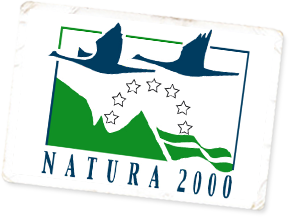 The Lyme Bay Fisheries and Conservation Reserve has made it in to the FINAL of the Natura 2000 Awards - established to recognise and promote excellence in nature conservation. In this pilot year of the award 163 applications from all over Europe were submitted and the level of competition was very high and we are delighted to have made it to the list of 22 finalists and have been invited to the final award ceremony in Brussels in May!
The Lyme Bay Fisheries and Conservation Reserve has made it in to the FINAL of the Natura 2000 Awards - established to recognise and promote excellence in nature conservation. In this pilot year of the award 163 applications from all over Europe were submitted and the level of competition was very high and we are delighted to have made it to the list of 22 finalists and have been invited to the final award ceremony in Brussels in May!
We submitted under the Reconciling Interests category, more information can be seen here:
Fingers crossed and wish us luck!
![]() Children say thank in words and pictures
Children say thank in words and pictures
14th April, 2014
Children are born naturalists. They explore the world with all of their senses, experiment in the environment, and communicate their discoveries to those around them." Zenobia Barlow
The future of our oceans is in the hands of children. The lovely students of Salway Ash Primary School in Bridport say a colourful and creative thank you to West Bay fisherman, Dave Sales. Dave has been teaching local children about the remarkable Lyme Bay Fisheries and Conservation Reserve and how him and his fellow fishermen are working together to manage the area for the future generations. With the help of BLUE Marine Foundation Dave has been visiting schools and teaching them about his sustainable fishing practices and the wonderful wildlife on their doorstep.
Thank you to the students of Salway Ash for their artwork. These are just a few examples, there were many more!
24th March, 2014
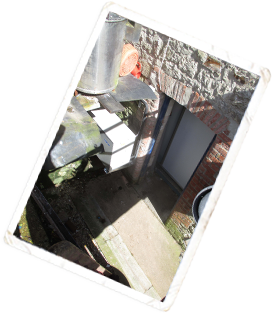 Beer fishing port has just taken delivery of an exciting new ice making machine and storage hopper, a freezer room and 6 thermal insulated fish boxes as part of the Lyme Bay Fisheries and Conservation Reserve's aim to improve existing Beer port facilities with the provision of ice making equipment that will improve the quality, durability and value of the landed catches for fisherman.
Beer fishing port has just taken delivery of an exciting new ice making machine and storage hopper, a freezer room and 6 thermal insulated fish boxes as part of the Lyme Bay Fisheries and Conservation Reserve's aim to improve existing Beer port facilities with the provision of ice making equipment that will improve the quality, durability and value of the landed catches for fisherman.
As fishermen have agreed to a reduction in gear levels in the interests of the environment, it is therefore desirable to help them achieve an optimum price for their catch by way of providing basic ice facilities within their port.
The availability of on-site ice will lead to increased competitiveness and improved quality of the Beer fishermen's catch. In turn this will lead to increased value on their existing catch from existing markets. The ice making machine and the freezer room is housed in the existing stone built fishermen's sheds, which is owned by the Beer Fishermen's Association.
The rollout of improving port facilities in the ports of West Bay, Lyme Regis and Axmouth also include ice making machines and hoppers, chiller rooms and thermal boxes. Part funded by BLUE (50%) and the EFF (50%) work is currently underway in the remaining ports. Stay tuned here for latest developments.
22nd January, 2014
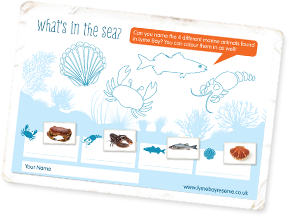
BLUE Marine Foundation and the Lyme Bay Fisheries and Conservation Reserve are making their way into local schools in the Lyme Bay area. With the help of our local fisherman, David Sales, BLUE is using the Lyme Bay project to help educate local schools on the importance of the Lyme Bay ecosystem and the significance of the Lyme Bay project in protecting its future - and the future of the fishing.
BLUE is using creative and stimulating school visits to enable local children to understand, and connect with a whole range of issues. Focusing on wildlife ecology, marine life, fishing practices, environmental and fishery management and much more! BLUE believe that these visits will help start to connect children to their local environment and the wonderful conservation that is happening on their doorstep.
Why not print off the Lyme Bay activity worksheet if you would like your children to get involved. High resolution versions can be found below:
Lyme Bay School Activity Sheet 1
Lyme Bay School Activity Sheet 2
![]() Temperate Reefs Symposium, Perth, Western Australia
Temperate Reefs Symposium, Perth, Western Australia
12th to 17th January, 2014
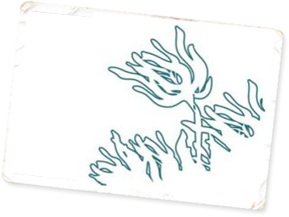
Our PhD student Adam Rees of Plymouth University Marine Institute, who is leading the Lyme Bay Reserve Scientific Potting Study will be attending the 10th annual Temperate Reefs Symposium, which takes place in Perth, Western Australia, from 12 to 17 January.
He will be promoting the Lyme Bay project, permanent details of which will be displayed in poster format at the conference. This symposium is the premier conference for marine scientists with a focus on temperate hard-bottom habitats. The developments in Lyme Bay apply directly to the subject matter being discussed during this conference.
More details can be found at http://10itrs.org/.
![]()

